Young BJS
Dedicated to and managed by surgeons in training, Young BJS offers everything a trainee could need to supplement and expand upon their core learning.
Focusing on the importance of surgical research, it gives trainees the opportunity to read and critique research, design surgical projects and optimise their chances of being published in peer-reviewed journals.
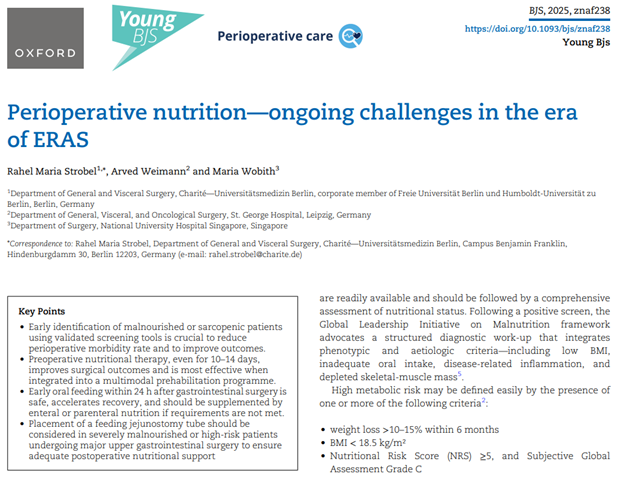
Perioperative nutrition—ongoing challenges in the era of ERAS
Strobel RM, Weimann A, Wobith M.
BJS 2025; 112: znaf238.
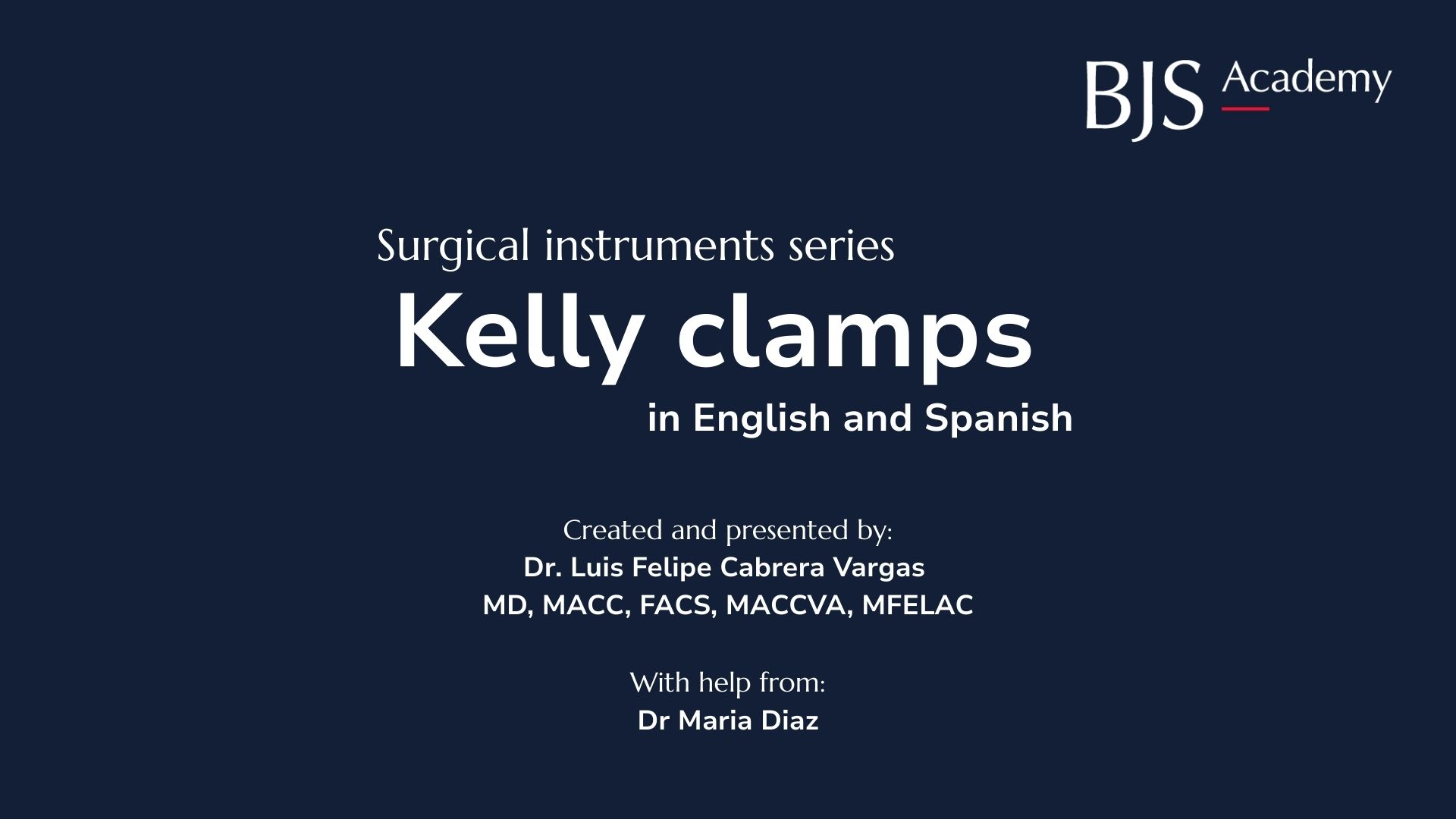
Surgical instruments: Kelly clamps
Welcome back to our video series exploring surgical instruments. In this episode, we have the Kelly clamps.
Presented in both English and Spanish by Dr Luis Felipe Cabrera Vargas (MD, MACC, FACS, MACCVA, MFELAC), with support from Dr Maria Diaz, this series aims to provide a practical review for trainees and young surgeons.
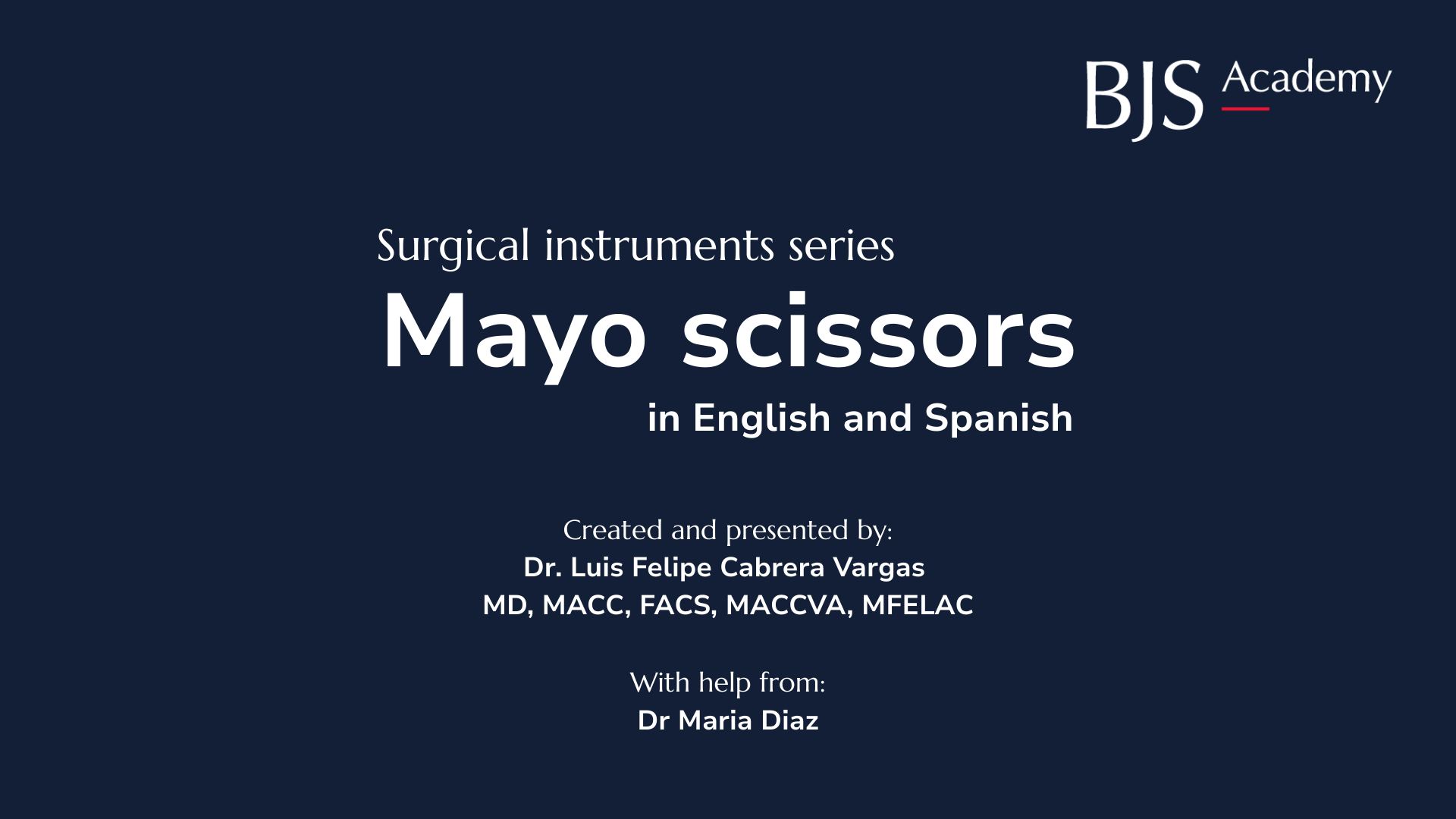
Surgical instruments: Mayo scissors
Welcome to our video series exploring surgical instruments. Second up, we have the Mayo scissors. Presented in both English and Spanish by Dr Luis Felipe Cabrera Vargas (MD, MACC, FACS, MACCVA, MFELAC), with support from Dr Maria Diaz, this series aims to provide a practical review for trainees and young surgeons.
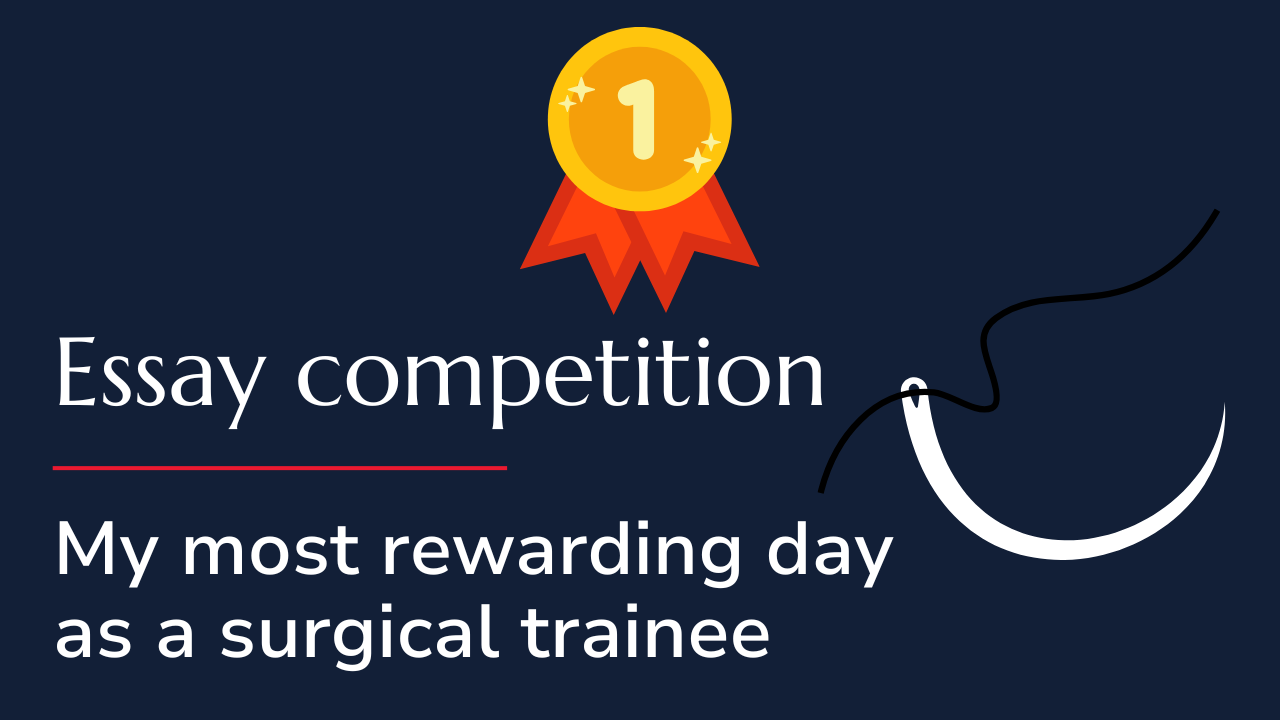
Carrying loss while saving lives
Wissam Benhami
That week, I was carrying a baby who was no longer alive. My body gave me no warning, no bleeding, no cramping. Just silence. And so I went on with my routine: attending rounds, writing discharges, putting on my scrubs. I was a surgeon in training, but also a mother in mourning, though no one around me could see it.
On Wednesday, I was on call. That morning, I stood as first assistant, opposite a distinguished surgeon, for a coloplasty in a young man who had ingested battery acid the year before in a suicide attempt. It was one of the heaviest procedures I had ever witnessed. The long, delicate mobilization of colon, the reconstruction of his esophagus, the careful hope stitched into each anastomosis. A year before, he had tried to end his life; now, he was being given back the possibility of eating, of living.
Yet as my hands held the tissue steady, I thought of the contradictions inside me: a patient fighting for life after choosing death, while I silently bore death inside me, longing for life. Surgery has a way of placing life and loss side by side on the same table. That day, it was more than metaphor, it was the reality I carried under my scrubs.
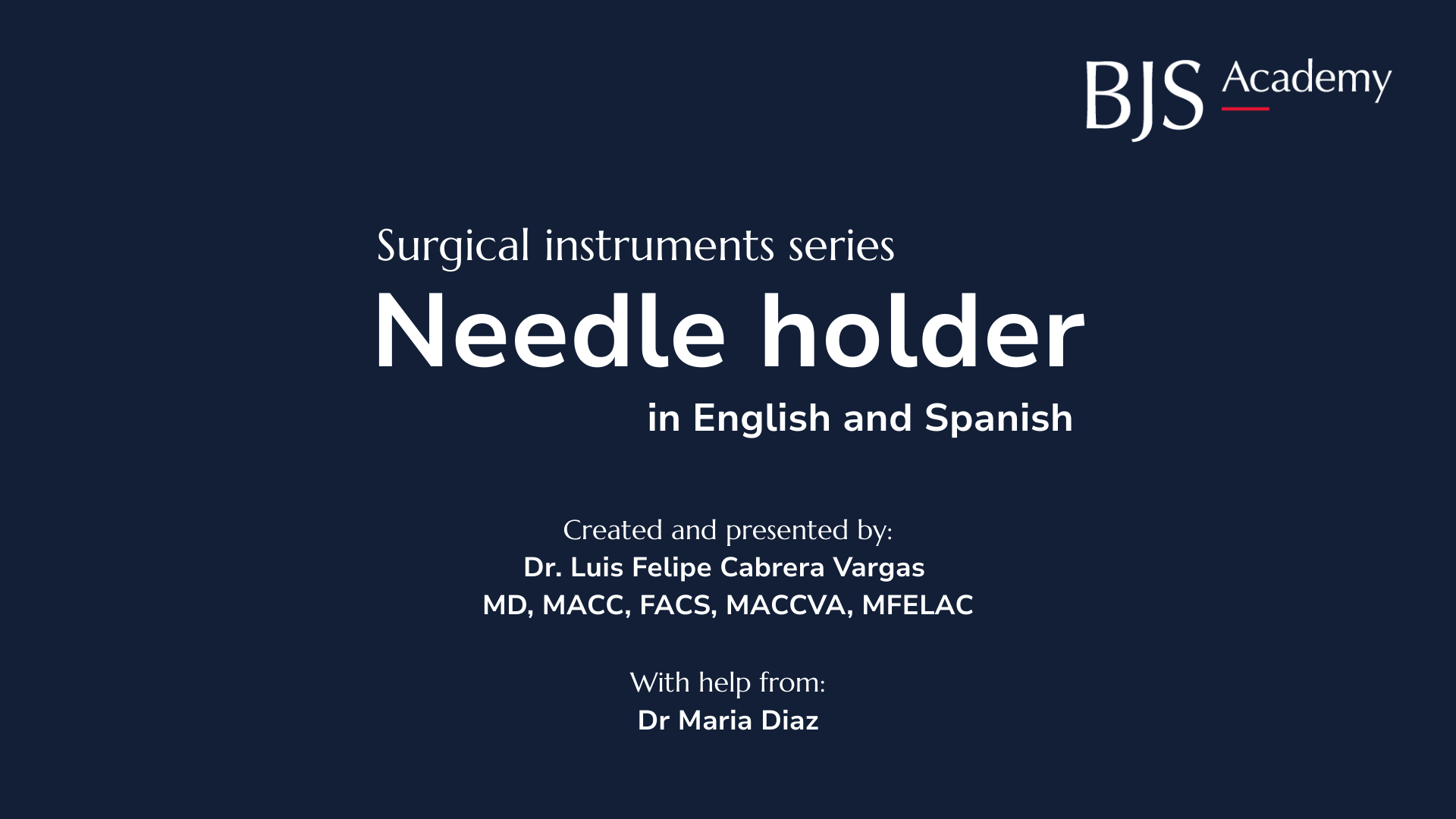
Surgical instruments: needle holder
Welcome to a new video series exploring surgical instruments. First up, we have the needle holder. Presented in both English and Spanish by Dr Luis Felipe Cabrera Vargas (MD, MACC, FACS, MACCVA, MFELAC), with support from Dr Maria Diaz, this series aims to provide a practical review for trainees and young surgeons.
_______
In English

Not the scale, but the significance
Talha Malik
During surgical training, many imagine the most rewarding days to be tied to complex, high-stakes operations. Yet, in my third year as a trainee at Rigshospitalet in Copenhagen, Denmark, the case that left the deepest impression on me was not glamorous—it was about saving a single testicle.
During my on-call shift, I received a call from a peripheral hospital 150 km away. A 3-year-old boy had been admitted there earlier with scrotal pain, diagnosed with a urinary tract infection, and discharged. Seven hours later he returned, inconsolable, with worsening pain. The on-call surgeon strongly suspected testicular torsion and requested an immediate transfer to our center.
By the time the boy arrived, almost twelve hours had passed since the first symptoms. His parents were visibly anxious and had many questions, fearing the worst for their son: Would he lose his testicle, and what implications would that have for his future—socially, sexually, and in terms of fertility? Their worry was amplified by the fact that he was their only child, conceived after five years of fertility treatment, which added extra weight to their fears.
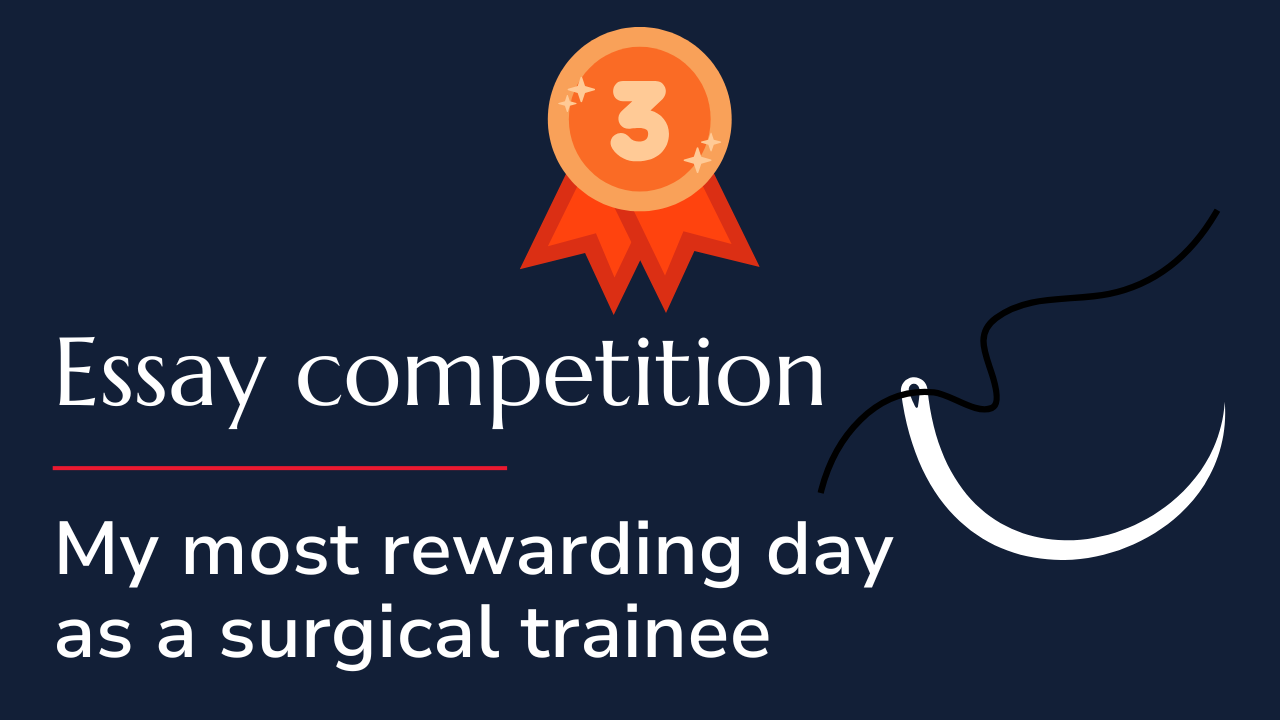
A whisper in theatre: how one quiet voice made a difference
Ye Htet Aung
I still remember that evening vividly. It wasn’t just another day in theatre—it was the day I truly found my voice.
Back then, I was working as a trust-grade SHO in the UK. It was my first surgical job, and as an international medical graduate, everything felt new and daunting. The language, the culture, the humour—even the way we communicated in theatre—was different. For someone like me, an introvert from an ethnic minority background, speaking up wasn’t easy. But in surgery, silence can be dangerous.
That day, I was assisting in what was supposed to be a straightforward laparoscopic cholecystectomy. Morgan, one of my SHO colleagues, was eager to start the procedure. Our registrar, Robert, was guiding him through the initial steps, while I stood as second assistant. The consultant was in the room but unscrubbed, watching from the sidelines.

Early postoperative orthostatic intolerance: pathophysiology and clinical implications
Joshi GP, Lobo DN, Kehlet H.
BJS 2025; 112: znaf109.

Perineal reconstruction for advanced pelvic malignancies
Li Z, Tang A, Drew P.
BJS 2025; 112: znaf164.
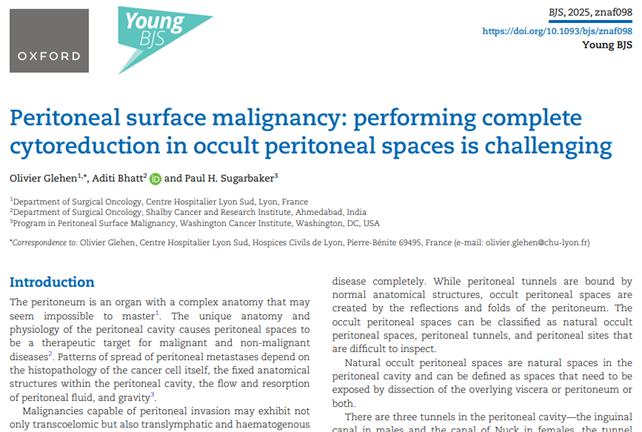
Peritoneal surface malignancy: performing complete cytoreduction in occult peritoneal spaces is challenging
Glehen O, Bhatt A, Sugarbaker PH.
BJS 2025; 112: znaf098.
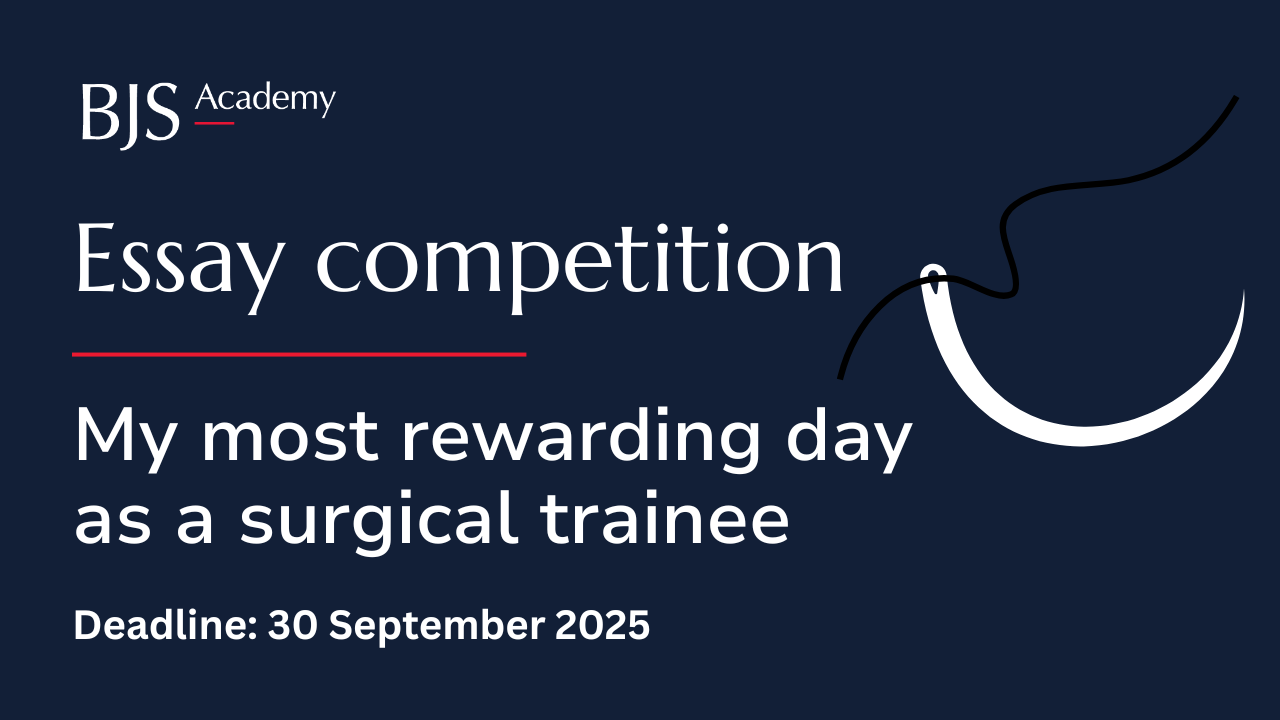
Essay competition: my most rewarding day as a surgical trainee
Have you had a moment in your training that reminded you exactly why you chose surgery? A day that made you feel proud and inspired?
Now is your chance to share that story with the surgical community — and win some fantastic prizes.
The “My most rewarding day as a surgical trainee” essay competition is now open!

Preoperative management and resectability criteria in perihilar cholangiocarcinoma
Sturesson C, Soreide K.
BJS 2025; 112: znae329.
Comment: Treatment often considered futile, but a thorough work-up, and surgery for selected patients is worthwhile.

Evaluation and treatment of ruptured abdominal aortic aneurysm
Leinweber ME, Rahmaditya FS, Hinchliffe RJ
Br J Surg 2025; 112: znaf051.

A surgical challenge on the evacuation train
Georgios Karagiannidis MBBS, MRCS, AFHEA
I was on holiday in Greece when news broke that a wildfire had erupted northeast of Athens, rapidly approaching the small town of Varnavas. On the morning of 12 August 2024, the skies were already heavy with smoke, and the wind carried an ominous, ash-laden warmth. I had planned a brief train trip north to admire the countryside, but instead, I found myself in the midst of an emergency evacuation, with local authorities urging everyone to board trains heading away from the fire zone.
I was ushered onto a crowded carriage filled with anxious families, many clutching their belongings in small bags. The train began rolling slowly southward, but before long, the atmosphere grew tense and unsettling. Amid the chaos, a frail-looking older man, who had been coughing incessantly, suddenly collapsed in the aisle. I identified myself as a doctor (the only medical personnel on board) and rushed to his side.
When I knelt down, I noticed a small wound on his arm. He must have brushed against jagged metal or broken glass during the hurried boarding. He was also breathless, appearing to verge on shock. Quick assessment revealed that in addition to the laceration on his forearm, he might be suffering from inhalation of smoke or an exacerbation of a chronic lung condition.

High stakes on a plane
Oliver Kooseenlin
I was sleeping on a flight and I am woken by a flight attendant asking a man in the opposite row “are you sure you’re OK?”
He was hyperventilating and complaining of chest pain. When the flight attendants started to bring out medical equipment from a locker, a curiosity spark lit up. I never experienced a medical emergency on a flight since graduating. I assisted a passenger on a train before, but never in the air.
I introduced myself, informed them I was training to become a surgeon and tried to get a brief history. I had no idea where to start. I asked, with little confidence, if there was any emergency kit? The crew proceeded to show me vials of adrenaline, an airway kit, an oxygen cylinder and plasters. The patient had low sats, so I went through my A to E in my head – thinking of my recent CCrISP -, putting on oxygen as we moved onto C and D, asking the cabin crew to be my “scribe” for the findings. A whirl of surgical differentials started spinning in my head when examining the abdomen. Could this be a pneumothorax, would he need a chest drain? Is this a perforation needing urgent intervention. Is this an episode of pancreatitis triggered by one too many in the bar pre-flight?

Everyday emergencies: “It’s the journey that matters”
Ayesha Unadkat
We often hear "It’s the Journey That Matters," but this took on new meaning for me one evening on a train. I realised surgical problems begin long before the first incision—sometimes in the everyday moments, often unnoticed.
It had been a long day, my mind cluttered with unread emails as the train hummed on. Suddenly, a shopping bag slipped from an elderly woman’s hand, spilling groceries. She barely reacted, staring at her hand as her grandson scrambled to collect the items. “Nan, you dropped everything!” he laughed, but she didn’t respond. Her eyes met mine, blinking as if clearing a fog. Her voice, slow and slurred, murmured, “Sorry, I just feel a little off”. Something felt wrong. This wasn't mere clumsiness but a silent alarm bell, a surgical emergency unfolding amidst the mundane.
Introducing myself, I gently inquired about her symptoms. "Can you raise your arms?" I asked. Her left arm wavered; the right remained motionless. Her history, reluctantly revealed, included a recent ‘tumble’, a detail she'd dismissed as trivial. My mind raced—could this be a stroke? An intracranial haemorrhage? The "FAST" mnemonic, a staple of stroke diagnosis, flashed through my mind: Facial droop, Arm weakness, Speech difficulties, Time to call emergency services. Without scans or senior clinicians, what was once just a memory aid from a lecture now felt very real. If this was a neurosurgical emergency, ‘Time’ was critical.

Cast your vote: ‘A surgical problem I helped manage on a plane, boat or train’ essay competition
We invited medical students and trainees to share their most memorable experiences managing surgical problems while in transit — on planes, boats or trains. Now, it’s your turn to decide the winner.
Read the entries and cast your vote by clicking the thumbs-up icon next to your favourite:
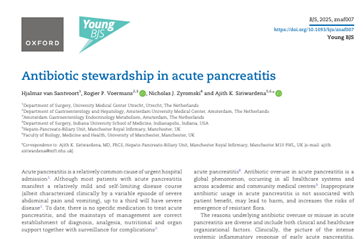
Antibiotic stewardship in acute pancreatitis
van Santvoort H, Voermans RP, Zyromski NJ, Siriwardena AK.
Br J Surg 2025;
112: znaf007

Rectal cancer surgery: radiology roadmaps
Pring ET, Burling DN, Glover TE, Jenkins JT.
BJS 2025; 112: znae270.
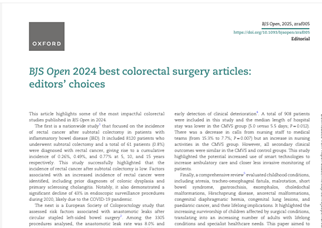
BJS Open 2024 best colorectal surgery articles: editors’ choices
Lorentzen L, McDermott F.
BJS Open 2025; 9: zraf005.

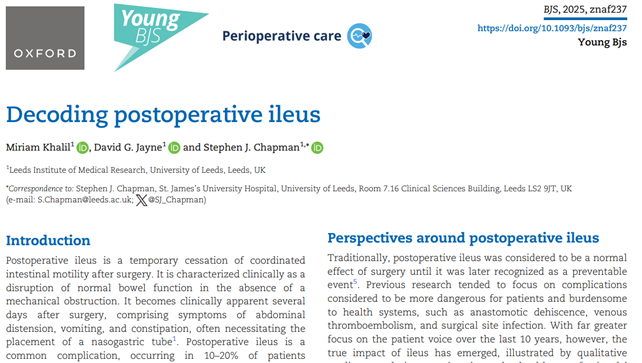





.png)





.jpg)




